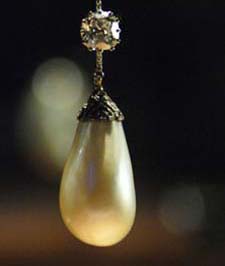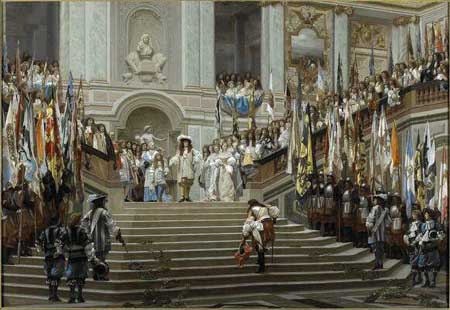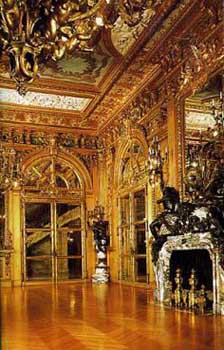 |
Organic Society
The State of Mind that Generated the Revolution
Plinio Corrêa de Oliveira
The process that led the medieval man to reject sacrality and respectability and to adopt the principles of the Revolution is based on a type of egoism that hates these values. It is a determined state of mind that is at the base of the acceptance of the Revolution as well as of almost all heresies.
There are children who, so to speak, are born egotists. They want everything for themselves and consider that anything other persons have was stolen from them. They are sad when something good happens to others. They have a tendency to speak badly of others, and even to slander them. They lean toward revolting against authority because it seems to them that they, and no one else, should have that authority. They also have an ambition to be more than everyone else. It is not rare they go so far as to prefer to cease to live rather than have someone superior to them.
This genre of person does not see the sacral as something highly respectable. On the contrary they revolt against the sacral. These are the natural supporters of the Revolution.
Sacrality in things and in man

The pearl represents the note of distinction.
Below, Empress Alexandra wears the famous Romanov Drop Pearl Tiara

|
Sacral is the ensemble of the metaphysical and religious meanings embodied in everything that is part of the created universe that reflects the likeness of God
When one admires a pearl, for example, and asks himself what it represents, he concludes that the pearl stands for distinction. The pearl does not have the purity and magnificence of the diamond or the brilliant glory of the precious stones. Therefore, one would say that it symbolizes something less. On the other hand, it represents not just the simple beauty of a shell, the mother of pearl, but has the same type of beauty that is much more. We may say that the pearl transcends and concentrates in itself the beauties of countless shells and offers this for the admiration of man as a symbol of distinction.
Analogously, everything in creation – in the mineral, vegetal, animal, human or angelic worlds – has a meaning and reflects something that is more elevated than its physical composition, something that is meta-physical, that is, goes beyond the physical.
These different symbolic, philosophical and religious meanings permeate the visible reality as a kind of heat or perfume that can be experienced by the senses of the soul and can be explained by human intelligence. They invite us to make an act of admiration for the thing in itself, an act of acknowledgement of the Creator who made it, and finally, an act of gratitude and reverence.
We should look seriously at everything from this sacral perspective and adequately adapt our lives to it. This requires a normal position of discerning the values enveloped in created things and admiring their meanings. We should accustom ourselves to grouping them together to classify them in a certain order, and thereby compose a whole internal panorama that each one of us is called to have of God and creation.
This is what we call sacral: the sacral in created things, and the sacral in the attitude of man.
No doubt, to look at the world in this way requires effort, suffering and dedication.
A revolted mentality gives birth to the Revolution
The kind of bad children we were describing, however, take a different approach to life. Regarding their parents’ affection, they would say: “You are a bother in my life. Your tenderness toward me asks for a return that I don’t want to give. Even if you would give me many things without asking for anything in return, I would still not like you. But your way of being tender calls for a return on my part, even if this is not your intention. This bothers me and displeases me.”

Wyclif, who hated Catholic pomp and splendor, was the medieval precursor of Protestantism |
Years later, this same child, now a youth, would add: “Your respectability is an obstacle for me to climb to higher ranks and prevents me from enjoying life. I prefer to be informal, relaxed, entirely spontaneous and casual. This will allow me to climb to better situations, enjoy life, and make fun of everything along with everyone else. Therefore, I reject you - your sacrality, respectability and religion.”
In the Middle Ages, there were times when this mentality swelled and heresies appeared. The grassroots adhering to such heresies was made up of persons who had this tendency. They hate sacrality and respectability, just as they also hate Our Lord Jesus Christ and His Church. Our Lord raised this type of hatred, as did the Church. So, with this we can understand the hatred of the Jews and the Roman Emperors against both. The heresies also are fed by this revolt and hatred.
Such revolted persons want to destroy this sacral atmosphere. They also want to do away with those who love it. Since Christianus alter Christus [a Christian is another Christ], they want to destroy all Catholics and Christendom, which represented the victory of the sacral mentality that Christ came to implant on earth.
This process of human wickedness is increased by the active support of the Devil. It explains how, at the apex of good that Christendom had reached in the Middle Ages, many heresies appeared - principally the Revolution, which is an enormous heresy that worked very methodically and succeeded in carrying in its wake the great majority of Christendom.
The liberal mentality - an indispensable accomplice of the Revolution
When a man loses the notion of the great evil of the Revolution and its works, then everything bad becomes possible. The liberal has a kind of silly optimism that dictates he must consider the good side of even the worst revolutionaries. For him everyone should be considered as good except for one group, us, the counter-revolutionaries. Insofar as a man thinks that every evil man is good, he judges every good man as bad. Given a chance, he would destroy us.
This explains why the heresies in the Middle Ages were accepted by many middle-of-the-road men. Even to this day, liberalism and a badly interpreted tolerance form the basis for the worst aspects of evil to spread in public opinion.
Heresies and miserablism
I believe the medieval heresies opposed the external pomp and ceremony of the Catholic Church – we call this position miserablism – because it is proper for heresy to be against the glory of God.
That particular type of children I described, who is revolted against the order of creation and turned toward their own ambition and pleasures ends by being miserablist. How does this happen?

In 1674, Louis XIV receiving the Prince of Condé from his exile on the Ambassador's Staircase at Versailles - Painting by Jean-Leon Gerome |
I will give you a historical example. The Revolution started by offering men a life of pleasure, filled with luxury and pomp turned toward their own glorification. This produced the Renaissance, which in turn produced the Ancien Regime in France. Louis XIV represented the apex of this process of enjoying a life of pleasure. In general Europe followed along the same lines.
At the end of Louis XIV’s long reign, society was satiated with grandeur and beauty. From this period onward, everything began to be smaller and less grandiose, just nice and charming. It was the epoch of Louis XV. He represented the abandonment of magnificence and the beginning of the process of sliding down the ramp into miserablism.
In Versailles, Louis XIV built the famous escalier des ambassadeurs [ambassadors’ staircase]. It was a magnificent staircase the ambassadors of other countries had to climb to enter the King’s reception rooms and present their credentials. He built it with the greatest splendor possible in order to produce a strong impression on them, an impression they would transmit to their respective sovereigns. It was a phenomenal thing according to the descriptions of the time. [In 1989 it was restored, but in a much poorer way. The two balconies for the nobles to watch the movement on the staircase - see the reproduction by Gerome - were replaced by paintings in art deco style.]

The Gold Ballroom of the Marble House in Newport Beach, Rhode Island |
Louis XV demolished the Ambassadors' Staircase and reformed a part of Versailles to build small charming rooms according to his taste. They were delightful in their delicacy, but the grandeur was gone forever. Louis XVI continued along these same lines. The hypertrophy of the life of pleasure reached its apex, and then began to decay.
By contrast, it generated the French Revolution which almost completely destroyed such life. So, the pleasures of the Renaissance would produce their opposite, that is, the hatred of the French Revolution for the pomp and ceremony. In this way miserablism was installed in society, waiting for the moment when Vatican II would install it in the Catholic Church.
I believe that something like this happened in the history of the United States also. When one analyzes those palaces in Rhode Island, we see that they belonged to a very wealthy social class that wanted to live in pomp and splendor. I heard that many of those houses were transformed into museums, others were sold, and others would have been destroyed if the city had not intervened to prevent it. Possibly the descendents of those families still have very rich and comfortable estates or apartments, but the pomp of old is gone. It fell, and miserablism entered the picture.

Posted January 7, 2008

  | | Prof. Plinio |
Organic Society was a theme dear to the late Prof. Plinio Corrêa de Oliveira. He addressed this topic on countless occasions during his life - at times in lectures for the formation of his disciples, at times in meetings with friends who gathered to study the social aspects and history of Christendom, at times just in passing.
Atila S. Guimarães selected excerpts of these lectures and conversations from the trancripts of tapes and his own personal notes. He translated and adapted them into articles for the TIA website. In these texts fidelity to the original ideas and words is kept as much as possible.

Related Topics of Interest
 The Lutheran and Calvinist Mentalities The Lutheran and Calvinist Mentalities
 Two Basic Aspects of the Medieval Mentality Two Basic Aspects of the Medieval Mentality
 Vocations of the European Peoples Vocations of the European Peoples
 The Poor Church of the Rich The Poor Church of the Rich
 Respectability in the Medieval Professions Respectability in the Medieval Professions
 Revolution and Counter-Revolution in the Tendencies, Ideas, and Facts Revolution and Counter-Revolution in the Tendencies, Ideas, and Facts

|
Organic Society | Social-Political | Home | Books | Cds | Search | Contact Us

© 2002-
Tradition in Action, Inc. All Rights Reserved
|
 |
|